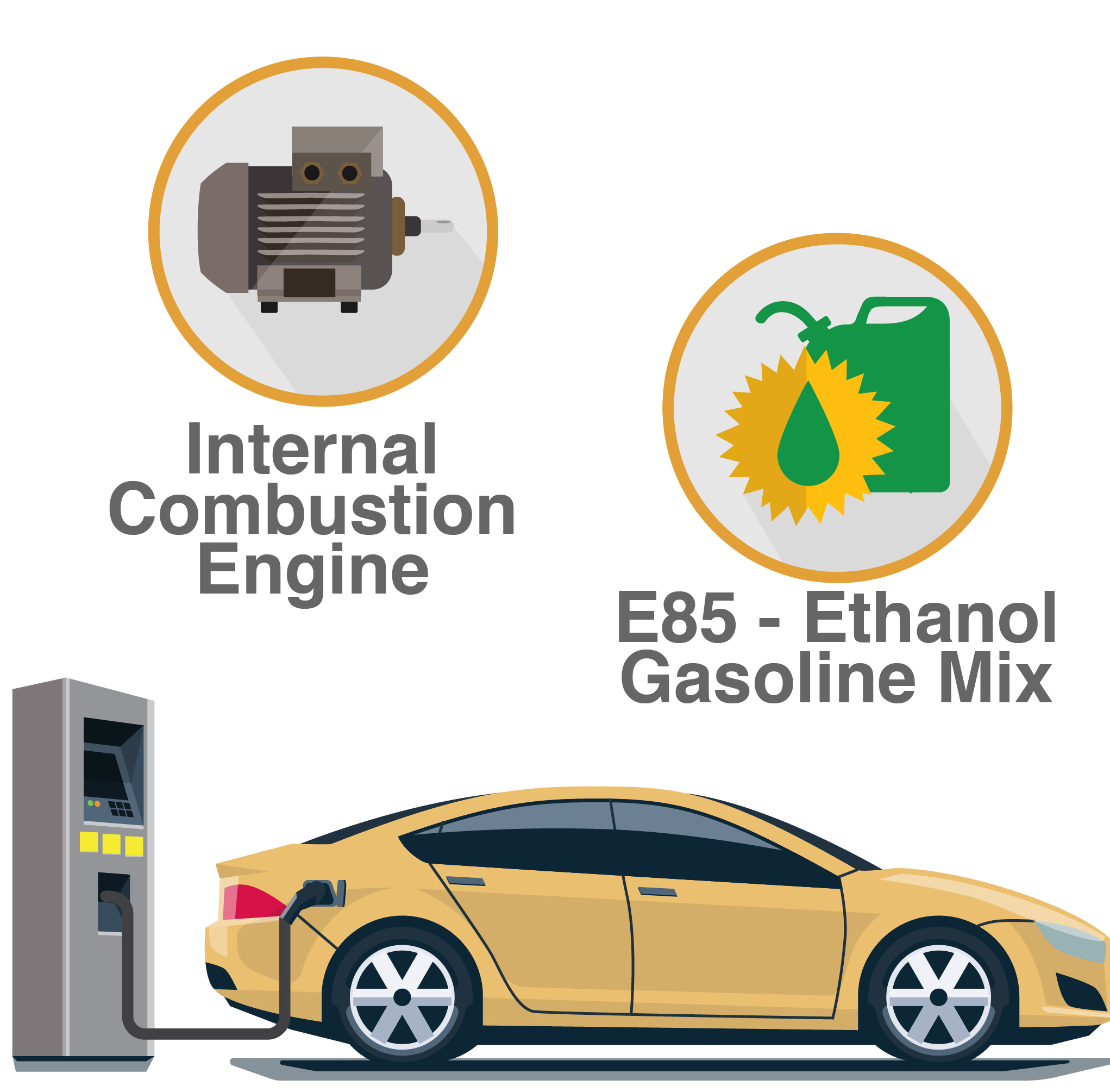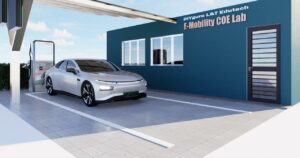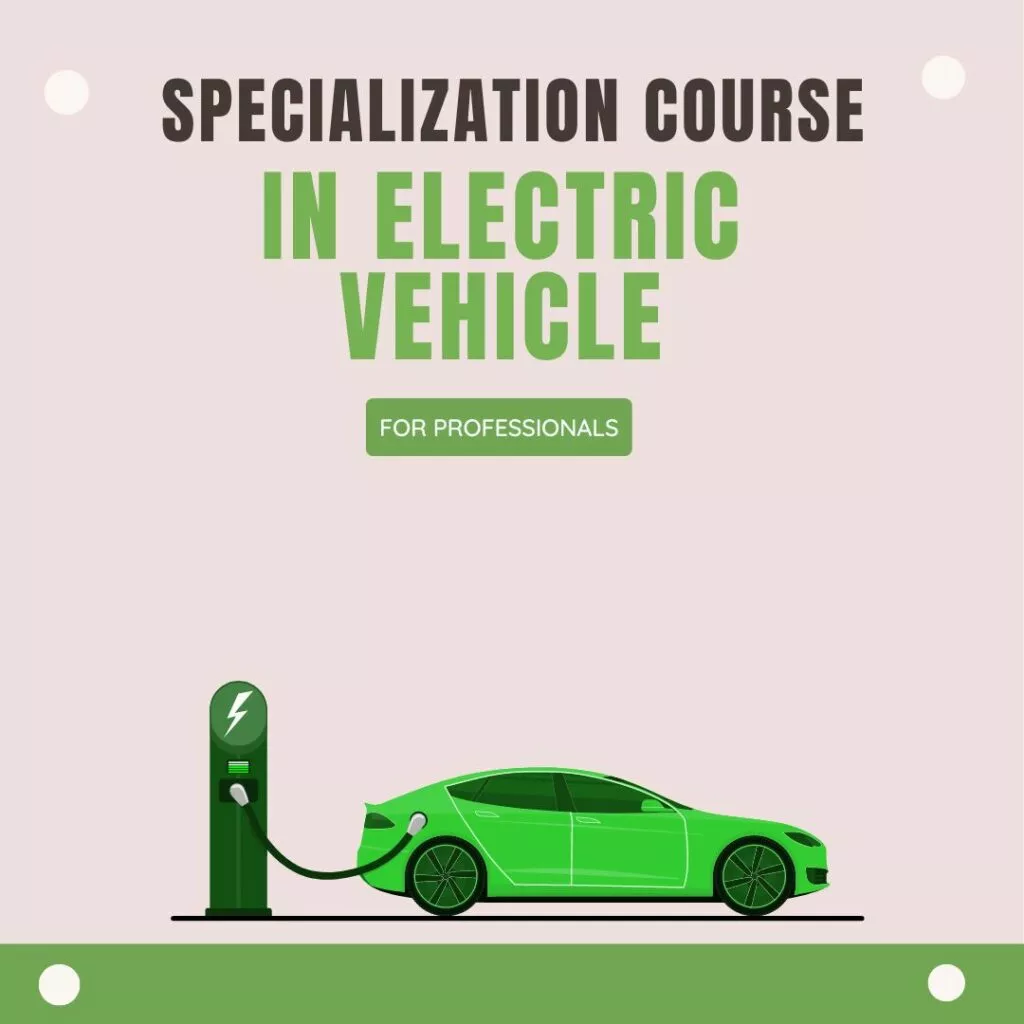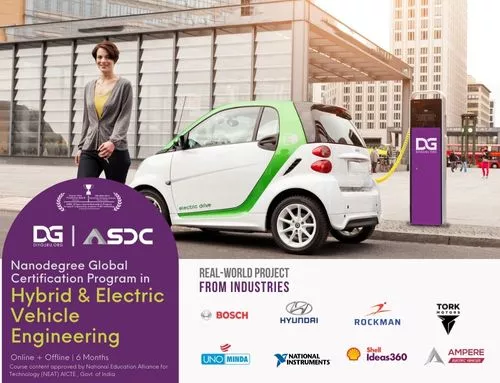Introduction:
Alternative fuel vehicles (AFVs) are a type of vehicle that use fuels other than gasoline or diesel to power their engines. AFVs offer a number of advantages over traditional internal combustion engine (ICE) vehicles, including reduced emissions and improved fuel efficiency. In this blog post, we will explore the definitions, different types, working principles, advantages, and disadvantages of alternative fuel vehicles.
What is an Alternative Fuel Vehicle?
An alternative fuel vehicle (AFV) is a type of vehicle that uses fuels other than gasoline or diesel to power its engine. AFVs can be powered by a variety of fuels, including electricity, hydrogen, natural gas, propane, and biodiesel.
Types of Alternative Fuel Vehicles:
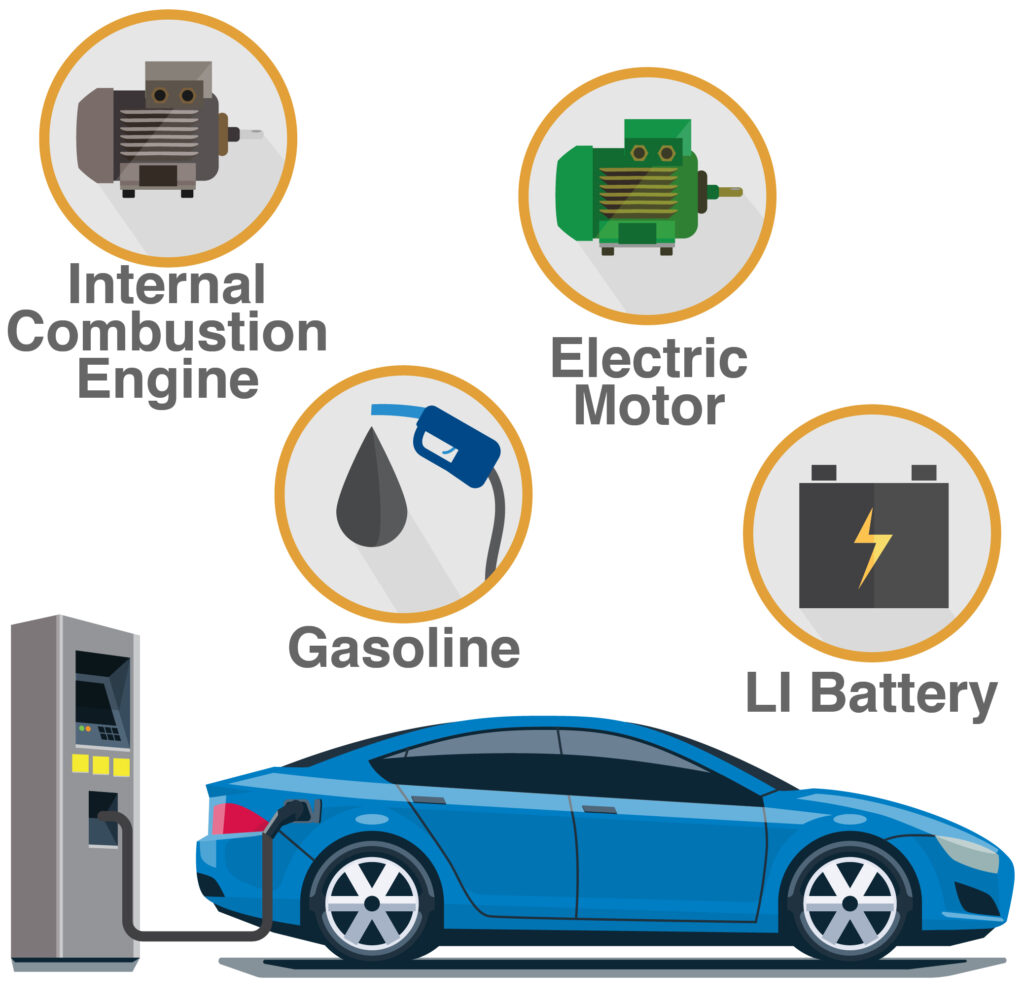
- Electric Vehicles (EVs) – EVs are powered by electricity stored in rechargeable batteries.
- Hybrid Electric Vehicles (HEVs) – HEVs combine an ICE engine with an electric motor and battery.
- Plug-In Hybrid Electric Vehicles (PHEVs) – PHEVs can be charged from an external power source, with an ICE engine as a backup.
- Fuel Cell Electric Vehicles (FCEVs) – FCEVs use hydrogen as their fuel source and produce electricity through a chemical reaction with oxygen, with water as the only byproduct.
- Natural Gas Vehicles (NGVs) – NGVs use compressed natural gas (CNG) or liquefied natural gas (LNG) as their fuel source.
- Propane Vehicles – Propane vehicles use propane as their fuel source.
- Biodiesel Vehicles – Biodiesel vehicles use biodiesel, which is a renewable fuel made from vegetable oil or animal fats.
How do Alternative Fuel Vehicles Work?
AFVs work differently depending on the type of fuel they use. EVs are powered by electricity stored in rechargeable batteries, while HEVs and PHEVs combine an ICE engine with an electric motor and battery. FCEVs use hydrogen as their fuel source and produce electricity through a chemical reaction with oxygen, with water as the only byproduct. NGVs and propane vehicles use compressed or liquefied natural gas or propane as their fuel source, while biodiesel vehicles use biodiesel made from vegetable oil or animal fats.
Advantages of Alternative Fuel Vehicles
- Reduced Emissions – AFVs produce fewer emissions than traditional ICE vehicles, making them more environmentally friendly.
- Improved Fuel Efficiency – AFVs are generally more fuel-efficient than ICE vehicles, reducing the amount of fuel needed to travel the same distance.
- Lower Fuel Costs – Some types of AFVs, such as electric vehicles, have lower fuel costs than traditional ICE vehicles, as electricity is generally cheaper than gasoline or diesel.
- Diverse Fuel Sources – AFVs can be powered by a variety of fuels, including renewable sources such as solar and wind energy.
- Government Incentives – Some governments offer incentives for purchasing AFVs, such as tax credits or rebates.
Disadvantages of Alternative Fuel Vehicles
- Limited Availability – Some types of AFVs are less widely available than traditional ICE vehicles, making them difficult to purchase or refuel.
- Higher Upfront Costs – AFVs are generally more expensive than traditional ICE vehicles, although prices are decreasing as technology improves and production increases.
- Limited Driving Range – Some types of AFVs, such as EVs, have limited driving ranges compared to traditional ICE vehicles, although this is improving with advances in battery technology.
- Limited Refueling Infrastructure – Some types of AFVs, such as FCEVs and NGVs, have limited refueling infrastructure, making it difficult to refuel in some areas.
Conclusion:

Alternative fuel vehicles offer a number of advantages over traditional ICE vehicles, including reduced emissions and improved fuel efficiency. However, they also have their disadvantages, including limited availability, higher upfront costs, and limited refueling infrastructure. As technology continues to develop and production increases, it is likely that AFVs will become more widely available and affordable, making them a viable alternative to traditional ICE vehicles.
FAQs:
Q1. What is an alternative fuel vehicle?
Ans. An alternative fuel vehicle (AFV) is a type of vehicle that uses fuels other than gasoline or diesel to power its engine.
Q2. What types of fuels can an AFV use?
Ans. AFVs can be powered by a variety of fuels, including electricity, hydrogen, natural gas, propane, and biodiesel.
Q3. What is an electric vehicle?
Ans. An electric vehicle (EV) is an AFV that is powered by electricity stored in rechargeable batteries.
Q4. What is a hybrid electric vehicle?
Ans. A hybrid electric vehicle (HEV) is an AFV that combines an internal combustion engine with an electric motor and battery.
Q5. What is a plug-in hybrid electric vehicle?
Ans. A plug-in hybrid electric vehicle (PHEV) is an AFV that can be charged from an external power source, with an internal combustion engine as a backup.
Q6. What is a fuel cell electric vehicle?
Ans. A fuel cell electric vehicle (FCEV) is an AFV that uses hydrogen as its fuel source and produces electricity through a chemical reaction with oxygen, with water as the only byproduct.
Q7. What is a natural gas vehicle?
Ans. A natural gas vehicle (NGV) is an AFV that uses compressed or liquefied natural gas as its fuel source.
Q8. What is a propane vehicle?
Ans. A propane vehicle uses propane as its fuel source.
Q9. What is a biodiesel vehicle?
Ans. A biodiesel vehicle uses biodiesel, which is a renewable fuel made from vegetable oil or animal fats.
Q10. Are AFVs more expensive than traditional vehicles?
Ans. AFVs are generally more expensive than traditional internal combustion engine (ICE) vehicles, although prices are decreasing as technology improves and production increases.


